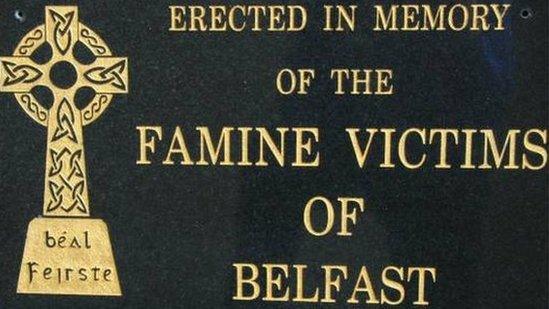Trevelyan descendant would consider Irish famine compensation
- Published
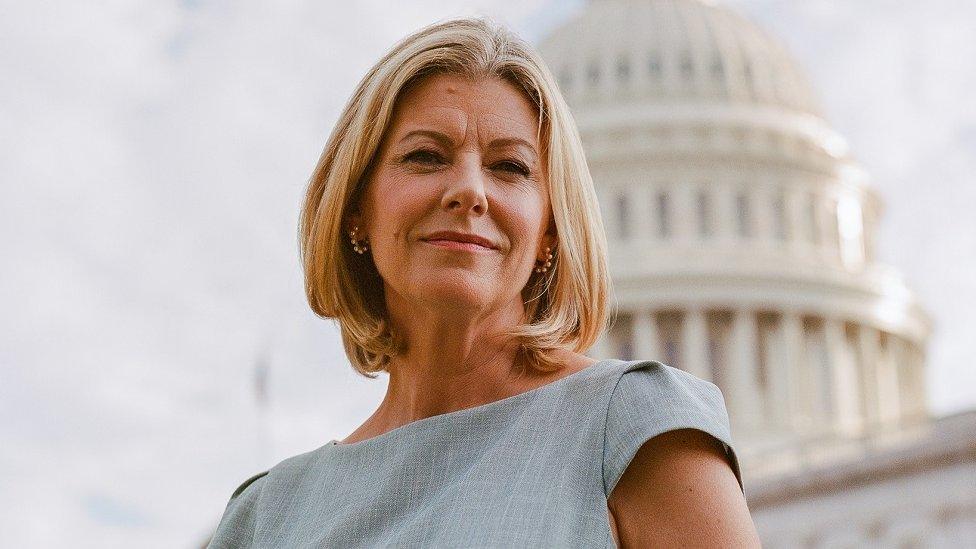
Laura Trevelyan, now a slavery reparations campaigner, worked for some time as a BBC correspondent in the United States
A descendant of 19th Century aristocrat Sir Charles Trevelyan has said if the Irish government asked her family to pay compensation over the Irish famine they would consider the request.
Laura Trevelyan accepts that her great, great, great-grandfather was among those who "failed their people" while governing Ireland during the famine.
The Irish folk song The Fields Of Athenry singles him out for blame.
But she does not believe her family should be held personally responsible.
Ms Trevelyan, a former BBC journalist, said this is because Sir Charles was involved in his capacity as a British government official during the famine.
In the 1840s, he was the senior British civil servant in charge of Irish famine relief.
More than a million people died and another two million emigrated during the famine, the result of potato blight and exports of food to Great Britain, which ruled the entire island of Ireland at the time.
Slave trade
The Fields Of Athenry is a ballad about a man prosecuted for stealing "Trevelyan's corn".
The Trevelyan family recently agreed to donate more than £100,000 to the Caribbean island of Grenada to compensate for their ancestors' historic role in the slave trade.
Asked why the Trevelyan family would pay compensation to Grenada over slavery and not to Ireland over the famine, Ms Trevelyan said her ancestors were personally profiting from the sale of sugar cane harvested by enslaved Africans in the Caribbean, while Sir Charles was carrying out government policy.
She added: "If the Irish government said the Trevelyan family are liable for what Sir Charles Edward did, then of course that would have to be considered."
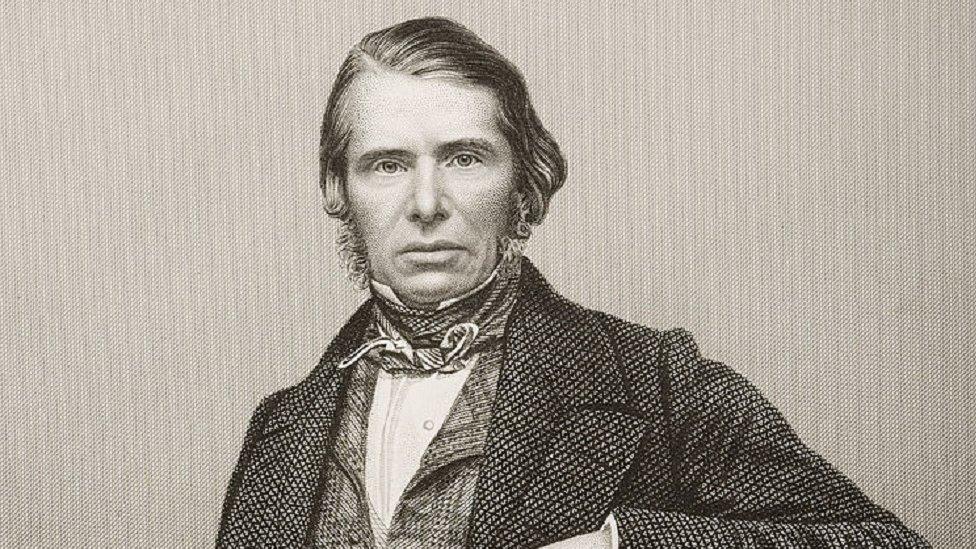
19th century British civil servant and colonial administrator Sir Charles Trevelyan
After 30 years in the BBC, in the UK and America, Ms Trevelyan left the corporation last month to become a full-time slavery reparations campaigner.
After her family issued a public apology in February over their historic links to slavery, the Irish novelist Katherine Mezzacappa asked Ms Trevelyan on Twitter: "Any word on Charles Trevelyan's catastrophic handling of famine relief in Ireland?"
Allow X content?
This article contains content provided by X. We ask for your permission before anything is loaded, as they may be using cookies and other technologies. You may want to read X’s cookie policy, external and privacy policy, external before accepting. To view this content choose ‘accept and continue’.
Ms Trevelyan told BBC Radio Ulster's The Nolan Show that the Fields Of Athenry had been sung at her, and she had been directly challenged about her family link to the famine by Sinn Fein's Martin McGuinness in the 1990s.
She said: "A quarter of a century ago, when I was a BBC reporter covering the Good Friday Agreement, I tripped over my own history.
"I well remember Martin McGuinness saying to me, 'Is this a coincidence that the British have sent a Trevelyan for the BBC, a state institution, to cover these negotiations?'.
"I assured him it was a coincidence but he didn't think it was at all and that's when I tripped up against Sir Charles Edward Trevelyan.
"And I remember so clearly being in Crossmaglen in south Armagh and speaking to a member of Republican Sinn Fein who looked at me in horror and said, 'How can you be driving around south Armagh with the blood of the Irish on your hands?' And to my embarrassment I didn't even really understand what either of them were talking about.
"When I got back to Britain I began to read up on Sir Charles."
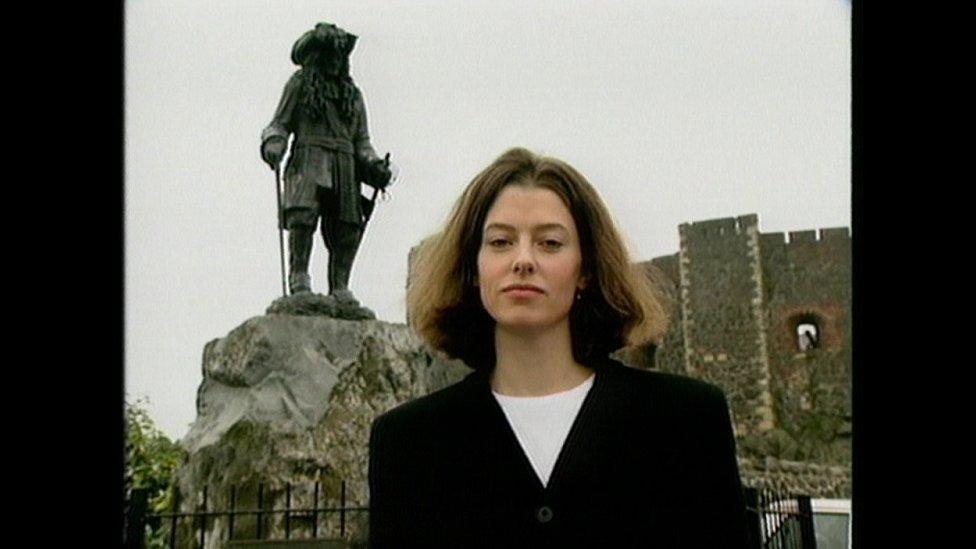
Laura Trevelyan as a young BBC reporter in the historic town of Carrickfergus, County Antrim
'Massive human tragedy'
Amid all the recent publicity about her family's connection to the slave trade, she expected questions to be also asked about what happened during the Irish famine.
In the 1830s, after the abolition of slavery, the Trevelyan family received about £34,000 in official compensation, the equivalent of about £3m in modern money.
Asked for her personal view of Sir Charles Trevelyan, she said: "When I wrote a book in 2006, A Very British Family, I'd read everything that had been written about him to that point.
"Where one ends up is, as [the then prime minister] Tony Blair said in 1997, those who governed in London at the time of the Irish famine failed their people by standing by while a crop failure turned into a massive human tragedy.
"He [Sir Charles] was the Treasury official in charge of the famine relief so he is an absolutely central character in this and as I reflected in my book in 2006, he's a providentialist, he's a laissez-faire economist. He feels that private charity in Ireland should be leaping to the rescue.
"It is hard to interpret his writings in some ways because they're so Victorian and convoluted and open to interpretation in some ways. But he both says the people cannot under any circumstances be allowed to starve - and they do starve, so he's failed by his own point.
"And he also seems to suggest that in some ways this is the divine punishment of God for a one-crop economy. It's very hard to defend any of it."
In her book, she said there was a debate over the extent of the role played by Sir Charles, with some historians being more critical than others, and at least one defending him.
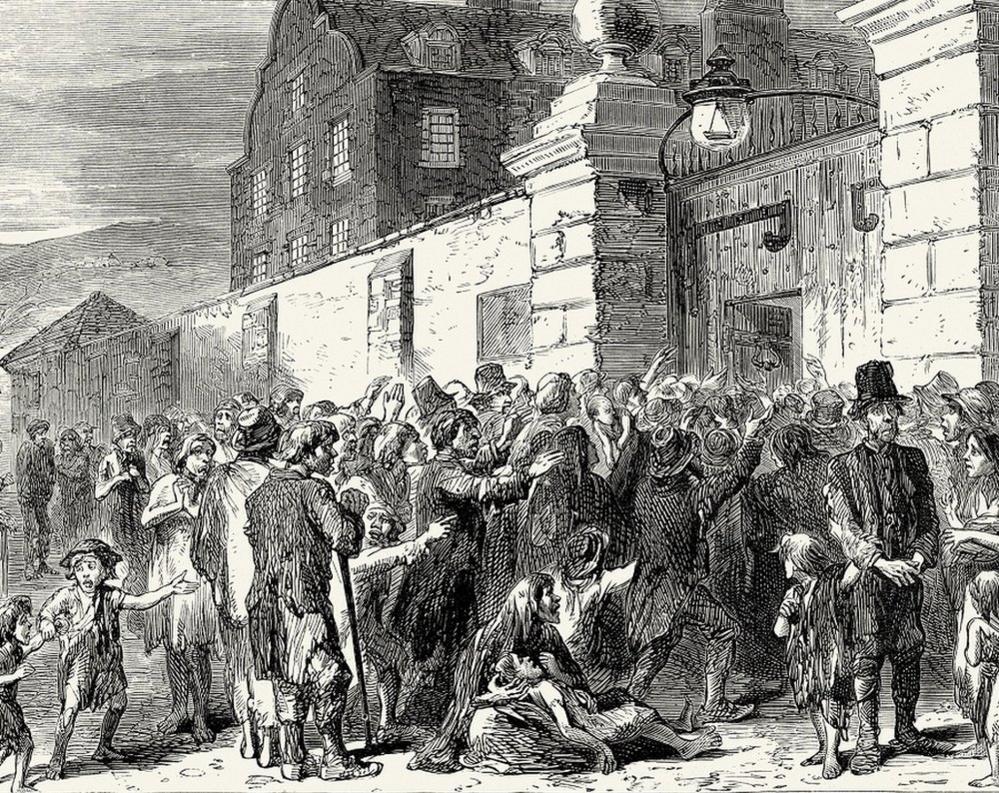
Detail from an illustration depicting a scene outside a 19th century workhouse during the Irish famine
As for the song, The Fields Of Athenry, it has become very familiar to Ms Trevelyan.
Written by Pete St John, it has grown in popularity in recent years and is often sung at Irish sporting occasions, including by fans supporting the Ireland rugby team.
"It's been sung to me many a time," Ms Trevelyan said.
"I was once trying to park a car outside the Ministry for Foreign Affairs in Dublin and somebody came and helped me get into the spot. I said, 'Thanks very much', and he said, 'What's your your name?' and I said 'Laura Trevelyan'.
"He looked at me… and began singing The Fields of Athenry.
"And I when I got into the Irish Ministry for Foreign Affairs I was shown around as though I was an historical artefact - 'she's related to Sir Charles' - all of which was pretty extraordinary. What I was embarrassed about at the time was that I didn't know the history of my family and here I was meeting all these people who knew it intimately.
"It made me realise that the past defines the present… you realise that more and more, how the past is not really the past."
On the issue of reparations for Ireland, Ms Trevelyan expanded on her position.
She said: "To the best of my knowledge there isn't an inter-government request from the Irish government to the British for reparations to be paid for the famine because of the action of officials like Sir Charles.
"I guess the distinction I would make is that in the Caribbean my ancestors were acting for private profit whereas Sir Charles was acting as an official for the British government, and the British government did in 1997 acknowledge his failures and the failures of others."
After three decades of telling the stories of other people, Laura Trevelyan is now at the centre of her own.
From anchoring BBC World News America, the broadcaster has turned into a campaigner.
While finding the sudden switch "truly weird", she says she has no regrets and is now fully focused on her new role.
Listen to the full interview with Laura Trevelyan on The Nolan Show on BBC Sounds.
- Published2 April 2023
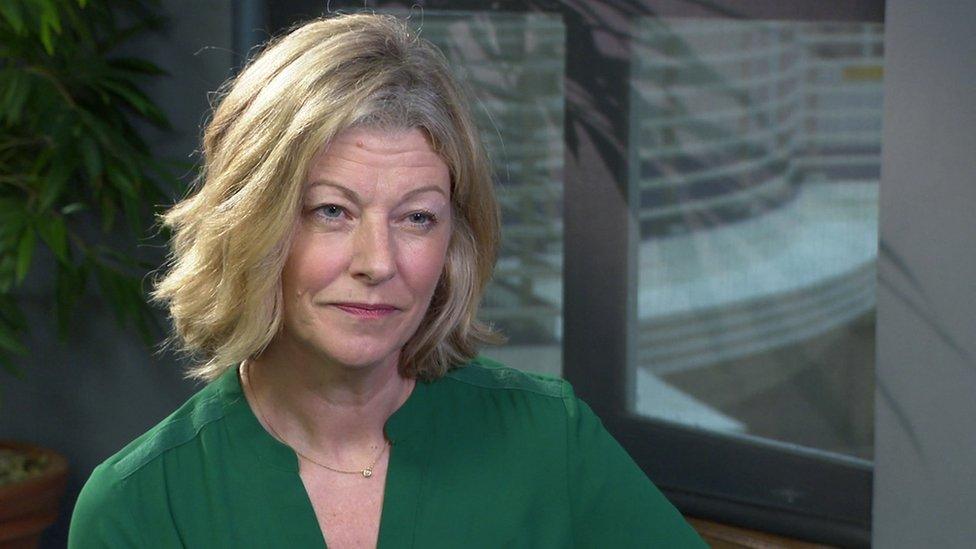
- Published20 January 2015
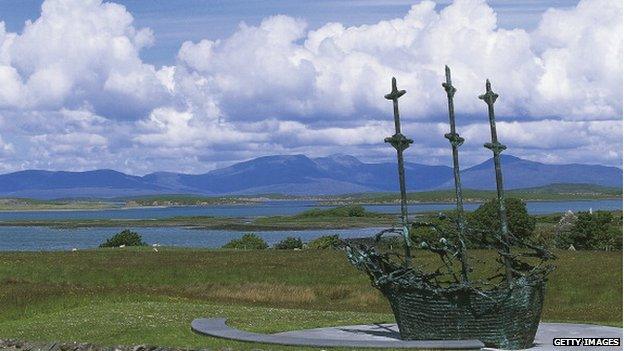
- Published26 September 2015
